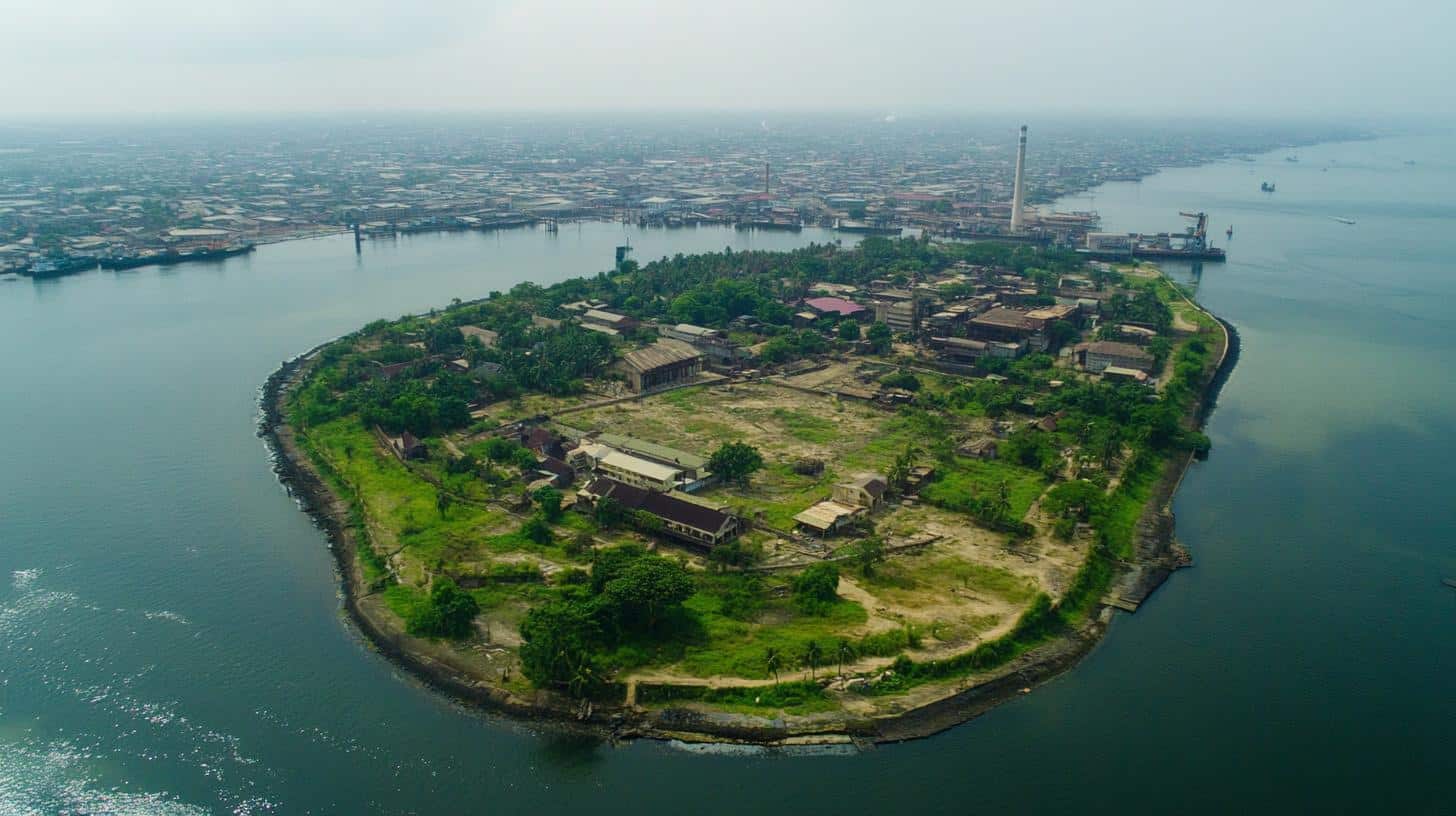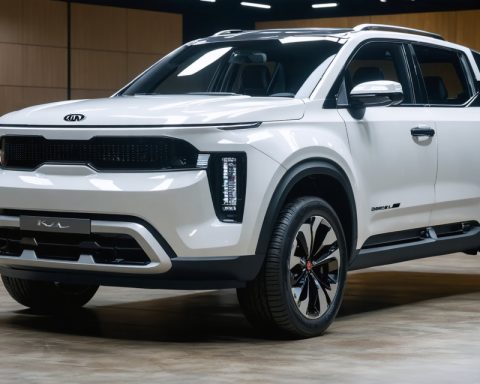In recent years, Obi Island, located in Indonesia’s North Maluku province, has undergone a remarkable transformation. Once a serene environment primarily inhabited by fishermen and farmers, the western section of this island—significantly larger than Singapore—has now evolved into a major industrial site.
This significant change is driven by one of the nation’s largest nickel mining and processing operations, which have sprouted on the island. The development is part of Indonesia’s broader strategy to position itself as a leader in the electric vehicle battery production sector. This initiative aligns with the government’s ambitious industrial policies aimed at enhancing the country’s economic landscape.
The new industrial complexes stand in stark contrast to the island’s previous quiet lifestyle. With extensive infrastructure and mining facilities now in place, the local economy is undergoing a seismic shift, attracting a myriad of investment opportunities. The focus on nickel, a critical component for electric vehicle batteries, underscores Indonesia’s commitment to sustainable energy and advanced manufacturing.
As Obi Island embraces this newfound industrial identity, the challenges and advantages of such rapid change will become increasingly evident. This evolution reflects not just the growth of an island, but also Indonesia’s ambitions on a global scale, as it seeks to harness its natural resources for a more technologically driven future.
Obi Island’s Industrial Transformation: Impacts and Controversies
Obi Island, once a peaceful haven of fishermen and farmers, is at the heart of a transformative industrial movement that is reshaping lives, communities, and the economic landscape of Indonesia. The shift from a traditional lifestyle to a bustling industrial site, primarily driven by nickel mining and processing, has brought both opportunities and challenges.
The economic implications of the mining boom are profound. As the western section of Obi Island transitions into a major industrial hub, local communities are witnessing an influx of jobs and investments. The demand for nickel, a crucial element in manufacturing electric vehicle batteries, has attracted multinational companies keen to tap into Indonesia’s mineral wealth. This not only promises economic growth for the island but also aligns Indonesia with global trends towards sustainable energy.
However, the rapid industrialization has sparked concerns among residents and environmentalists. Many locals fear the loss of their traditional way of life. The once quiet fishing villages are now surrounded by heavy machinery and mining operations, leading to a cultural shift that may disrupt longstanding community ties. Additionally, the influx of workers from other regions may strain local resources and lead to tensions over employment and housing.
Environmental issues are also coming to the forefront. The nickel mining process is known to pose significant risks to biodiversity and water quality. As mining companies ramp up operations, the potential for deforestation, pollution, and habitat loss looms large, raising alarms from environmental activists. The delicate balance between economic development and environmental sustainability often leads to contentious debates within the community and beyond.
Interesting facts reveal the scale of the industrial changes: Obi Island is now part of Indonesia’s plan to become the world’s largest nickel supplier, which could potentially change global supply chains in the electric vehicle market. This ambition has positioned Indonesia as a key player in a sector that is crucial for combating climate change through the promotion of sustainable transportation.
Controversies surrounding this industrial shift are multifaceted. Some critics argue that the government’s focus on attracting foreign investment may overlook the rights and needs of indigenous populations. Protests have arisen as local communities demand a voice in the development processes that affect their lands and livelihoods.
As Obi Island’s identity continues to evolve, the dialogue surrounding economic growth versus cultural preservation and environmental sustainability becomes increasingly vital. The outcomes of this transformation will not only define the future of Obi Island but could also serve as a model for other regions in Indonesia and around the world facing similar crossroads.
For further insights on Indonesia’s mining policies and environmental impacts, visit Jakarta Post or explore sustainable development discussions at World Resources Institute.
The article has been updated: 2024-11-05 14:54
Here are some suggested related links to include in your post:
1. National Geographic – Explore in-depth articles and documentaries about communities undergoing transformation and the impact of industrialization on local cultures and environments.
2. World Bank – Access resources and studies on economic development, industrial growth, and community resilience that may relate to the changes occurring on Obi Island.
3. United Nations – Find information on sustainable development goals and initiatives that address the balance between industrial growth and community welfare.
4. International Renewable Energy Agency (IRENA) – Discover insights on sustainable energy practices that accompany industrial transformations in communities like those on Obi Island.
5. CNN – Stay updated with news articles covering global community transformations and the effects of industrialization in various regions.
6. BBC – Read feature stories and reports on socio-economic changes in different communities, including those transitioning from quiet lifestyles to industrial activity.
7. The Guardian – Investigate articles that analyze the cultural and environmental implications of industrial hubs emerging in once tranquil regions.
8. Reuters – Access breaking news and analyses regarding economic developments, including the rise of industrial activities in previously peaceful communities.
9. Massachusetts Institute of Technology (MIT) – Explore research and innovations related to urban development and industrial policies that can provide insights into transformations like that of Obi Island.
10. ScienceDirect – Browse scientific studies and research articles that focus on industrialization and its social impact, providing a deeper understanding of the changes occurring on Obi Island.
The article has been updated. 2024-11-06 01:50
What are the key factors that led to the transformation of Obi Island from a tranquil community to an industrial hub?
The transformation of Obi Island from a tranquil community to an industrial hub can be attributed to several key factors. Firstly, significant investments in infrastructure, including transportation and utilities, have made the island more accessible and viable for industrial activities. Secondly, the discovery of natural resources, such as minerals and timber, has attracted businesses and industries seeking to capitalize on these assets. Thirdly, government policies promoting industrialization and economic growth in the region have incentivized both local and foreign investments. Lastly, the increasing demand for goods and services in the surrounding areas has fueled the growth of manufacturing and other industries on the island, leading to a profound change in its social and economic landscape. As a result, what was once a peaceful community is now on the path to becoming a bustling industrial center.












